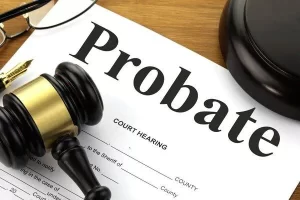In the realm of estate planning, a Medicaid Asset Protection Trust stands out as a powerful tool for safeguarding assets and ensuring peace of mind for individuals seeking to navigate the complex landscape of long-term care and healthcare financing. As experienced lawyers at Morgan Legal Group in New York City, we understand the intricacies of this specialized trust and strive to provide clarity on how it operates to benefit our clients. Join us as we unravel the inner workings of a Medicaid Asset Protection Trust and explore its role in securing a stable financial future.
Overview of Medicaid Asset Protection Trusts
Medicaid Asset Protection Trusts are a valuable tool for individuals looking to protect their assets while still qualifying for Medicaid benefits. These irrevocable trusts allow individuals to transfer ownership of their assets to a trustee, thereby removing them from their personal ownership and control. This strategic move effectively reduces the individual’s countable assets, allowing them to qualify for Medicaid benefits while still preserving a legacy for their loved ones.
One key feature of a Medicaid Asset Protection Trust is that the individual creating the trust (the grantor) can still receive income generated by the assets within the trust. This provides a level of flexibility and security, as the grantor can continue to benefit from their assets during their lifetime. Additionally, assets placed in a Medicaid Asset Protection Trust are protected from Medicaid recovery efforts after the grantor passes away, ensuring that their legacy is preserved for their heirs. Overall, a Medicaid Asset Protection Trust is a powerful tool for individuals looking to secure their future while still qualifying for essential Medicaid benefits.

Key Benefits and Advantages of Establishing a Medicaid Asset Protection Trust
Establishing a Medicaid Asset Protection Trust can provide numerous advantages for individuals looking to protect their assets while still qualifying for Medicaid benefits. Some key benefits include:
- Asset Protection: By transferring assets into the trust, they are shielded from Medicaid spend-down requirements, ensuring they are preserved for future generations.
- Medicaid Eligibility: The assets held in the trust are not considered when determining Medicaid eligibility, allowing individuals to qualify for benefits while still maintaining control over their assets.

How to Properly Set Up and Fund a Medicaid Asset Protection Trust
Setting up and funding a Medicaid Asset Protection Trust is a crucial step in protecting your assets and ensuring they are not counted towards your Medicaid eligibility. To properly establish a Medicaid Asset Protection Trust, follow these steps:
- Choose a Trustee: Select a responsible and trustworthy individual to manage the trust on your behalf.
- Create the Trust: Draft a legal document outlining the terms and conditions of the trust, including the assets to be transferred into it.
- Transfer Assets: Fund the trust by transferring assets such as real estate, investments, and bank accounts into the trust’s name.
- Meet Legal Requirements: Ensure that the trust meets all legal requirements to be valid and effective for Medicaid asset protection purposes.
By properly setting up and funding a Medicaid Asset Protection Trust, you can safeguard your assets and qualify for Medicaid benefits when needed. Consulting with an experienced estate planning attorney, such as Morgan Legal Group in New York City, can help you navigate the complexities of establishing a trust and ensure your assets are protected.

Common Pitfalls to Avoid When Using a Medicaid Asset Protection Trust
Medicaid Asset Protection Trusts are powerful tools that can help individuals protect their assets while still qualifying for Medicaid benefits. However, there are common pitfalls that individuals should avoid when setting up and managing these trusts to ensure their effectiveness and compliance with Medicaid rules. One common mistake is failing to properly fund the trust, as assets must be transferred into the trust to receive protection. Without proper funding, the trust may not achieve its intended purpose.
Another pitfall to avoid is not seeking legal advice when creating a Medicaid Asset Protection Trust. Working with an experienced attorney who specializes in estate planning and elder law can help individuals navigate the complex rules and regulations surrounding these trusts. An attorney can also provide guidance on best practices for managing and distributing assets within the trust to maximize protection and minimize tax implications. By avoiding these common pitfalls and working with a knowledgeable legal professional, individuals can successfully utilize a Medicaid Asset Protection Trust to safeguard their assets and secure their financial future.
Q&A
Q: What is a Medicaid Asset Protection Trust?
A: A Medicaid Asset Protection Trust is a legal tool that allows individuals to protect their assets from being counted against them when applying for Medicaid to cover nursing home or long-term care costs.
Q: How does a Medicaid Asset Protection Trust work?
A: By transferring assets into the trust, individuals can ensure that those assets are not considered as part of their Medicaid eligibility. This allows them to qualify for Medicaid benefits without having to spend down all of their assets first.
Q: Who can benefit from a Medicaid Asset Protection Trust?
A: Anyone who wants to protect their assets from being depleted by long-term care costs can benefit from a Medicaid Asset Protection Trust. This is especially helpful for individuals who anticipate needing Medicaid coverage in the future.
Q: Are there any limitations to a Medicaid Asset Protection Trust?
A: Yes, there are rules and limitations that govern the use of a Medicaid Asset Protection Trust. It is important to consult with a qualified estate planning attorney to ensure that the trust is set up correctly and complies with all applicable laws.
Q: What are the advantages of a Medicaid Asset Protection Trust?
A: One of the main advantages of a Medicaid Asset Protection Trust is that it allows individuals to preserve assets for their loved ones while still qualifying for Medicaid benefits. It also provides a level of control and flexibility over how assets are distributed.
Q: How can someone set up a Medicaid Asset Protection Trust?
A: Setting up a Medicaid Asset Protection Trust involves working with an estate planning attorney to create a legally binding trust document and transfer assets into the trust. It is important to follow all legal requirements and guidelines to ensure the trust is valid.
Key Takeaways
In conclusion, a Medicaid Asset Protection Trust can provide peace of mind to individuals seeking to protect their assets while qualifying for Medicaid benefits. By transferring assets into a trust, individuals can ensure their financial security while also maintaining eligibility for much-needed long-term care services. Understanding how this trust works and consulting with a qualified estate planning attorney can help navigate the complexities of Medicaid eligibility and asset protection. With careful planning and consideration, individuals can secure their financial future and safeguard their assets for generations to come.
 An Introduction to Medicaid Asset Protection Trusts
An Introduction to Medicaid Asset Protection Trusts
As people age, long-term care can become a reality for many families. With the rising cost of assisted living facilities and nursing homes, families may find it challenging to secure their loved one’s well-being without exhausting their entire savings and assets. This dilemma has led to the creation of a special type of trust – the Medicaid Asset Protection Trust. In this article, we will delve into what a Medicaid Asset Protection Trust is and how it works.
Definition of a Medicaid Asset Protection Trust
A Medicaid Asset Protection Trust (MAPT) is a type of irrevocable trust that is specifically designed to protect your assets from being counted as part of your assets for long-term care eligibility purposes. Generally, the goal of an asset protection trust is to protect your assets from creditors and potential legal disputes. However, a MAPT has the added benefit of helping you qualify for Medicaid benefits without having to spend down all of your personal assets.
How Does a Medicaid Asset Protection Trust Work?
To understand how a Medicaid Asset Protection Trust works, we first need to understand some of the key players involved in the process. A grantor is the person creating the trust, the trustee is the person or entity tasked with managing the trust, and the beneficiaries are those who will receive the assets from the trust. In the case of a MAPT, the grantor, trustee, and beneficiary are typically the same person – the person creating the trust.
The process of creating a MAPT involves the grantor transferring their assets into the trust, effectively removing ownership and control from the grantor. This transfer of assets, if done correctly, will protect those assets from being counted for Medicaid eligibility purposes.
Once the assets are placed into the trust, the trustee will have control and management over those assets and can use them for the benefit of the grantor. However, the grantor cannot access the assets directly, as they no longer legally own them.
The Benefits of a Medicaid Asset Protection Trust
There are several benefits to creating a Medicaid Asset Protection Trust, including:
1. Protecting Your Assets
The primary benefit of a MAPT is, as the name suggests, protecting your assets. By creating this type of trust, you can ensure that your loved ones will have access to those assets should you require long-term care, without having to exhaust them first.
2. Qualifying for Medicaid Benefits
In most cases, to qualify for Medicaid benefits, an individual must deplete their assets below a certain threshold. With a MAPT, the assets placed into the trust are not counted towards that threshold, allowing you to qualify for Medicaid without having to spend down your assets.
3. Avoiding Probate
When a person passes away, their estate may typically go through a legal process known as probate. The probate process can be lengthy, expensive, and public. With a MAPT, the assets placed into the trust will avoid the probate process and be distributed directly to the beneficiaries without any additional legal proceedings.
Practical Tips for Creating a Medicaid Asset Protection Trust
Creating a MAPT can be a complicated process, and it is essential to seek the guidance of a reputable attorney who specializes in elder law. Here are a few practical tips to keep in mind when creating a Medicaid Asset Protection Trust:
1. Start Early
It is vital to start early when considering creating a MAPT. Ideally, it would be best to create the trust at least five years before applying for Medicaid benefits.
2. Work with an Experienced Attorney
While it may be tempting to use a DIY approach to create a MAPT, it is not recommended. Medicaid laws and regulations are complex and often change, making it crucial to work with an experienced attorney who specializes in elder law.
3. Understand the Limitations of a MAPT
It is essential to understand that a MAPT will not protect against all types of creditors. For example, it will not protect against unpaid taxes or court-ordered restitution for criminal activities.
Real-Life Example of a Medicaid Asset Protection Trust
Let us consider the hypothetical case of John, a 65-year-old man planning for his future. John has a significant amount of assets, including his primary residence, a second property, and a retirement account. He is concerned that if he falls ill and requires long-term care, he will have to exhaust his assets to afford the necessary care. After consulting with an attorney, John decides to create a MAPT and transfers his primary residence, second property, and a portion of his retirement account into the trust.
Fast forward ten years, and John falls ill and requires long-term care. Since he had created a MAPT, his assets placed into the trust are not counted towards the Medicaid eligibility threshold. This means John can qualify for Medicaid benefits without having to spend down his assets and protecting them for his beneficiaries.
Conclusion
In summary, a Medicaid Asset Protection Trust is an irrevocable trust designed to protect your assets from being counted for Medicaid eligibility purposes. By creating a MAPT, you can ensure that your loved ones will have access to your assets when needed without having to exhaust them first. It is essential to work with an experienced attorney and start planning early to reap the full benefits of a MAPT. We hope this article has helped you understand how a MAPT works and the benefits it can provide.












